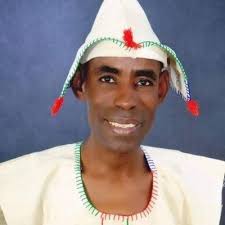“At its essence, political godfatherism is a myth — an illusion of control that ultimately collapses under the weight of shifting realities. Those who endeavor to manipulate politics from behind the curtain often forget that democracy is a dynamic system, not a personal empire”.
BY BELLO GWARZO ABDULLAHI

In Nigeria’s political theatre, one persistent and corrosive force continues to cast a long, ominous shadow: political godfatherism. Despite decades of democratic advancement and civic enlightenment, this antiquated and detrimental tradition remains obstinate. Sustained by individuals who presume they can impose their will upon an entire political framework, godfatherism has evolved into a significant threat to credible leadership and national progress.
These self-proclaimed kingmakers operate under the delusion that they possess a divine right to dictate the course of political affairs — handpicking leaders, controlling party structures, and expecting unwavering allegiance. Yet, they often overlook a crucial truth: power is ephemeral, and democracy, by its very nature, repudiates perpetual rulers or puppet-masters.
The Godfather Illusion
Many of these godfathers function with a perilous sense of entitlement. They presume they are impervious to public scrutiny and immune from political transformation. However, time and history — both within Nigeria and globally — consistently demonstrate that such power is transient. Those who ascend through manipulation often plummet with equal force, sometimes losing not only relevance but also the respect they once commanded.
Indeed, Nigeria’s post-1999 democratic narrative presents numerous cautionary tales. From state governors to national party leaders, many godfathers have installed successors only to find themselves sidelined or outright repudiated by them. Some attempted to govern through fear, others with financial inducements and patronage. Yet, almost all discovered that power acquired through imposition is ultimately unsustainable. The very electorate they once disregarded — along with the protégés they once cultivated — often become the instruments of their political demise.
Why Godfatherism Always Fails
The failure of political godfathers is no mere coincidence. It follows a predictable trajectory driven by:
– Arrogance: They overestimate their own significance while underestimating the maturity of the political landscape.
– Disconnection: Many become estranged from the grassroots, mistaking control of party delegates for genuine popular support.
– Fear of Change: They resist evolving realities, particularly the burgeoning political consciousness among Nigeria’s youth — a generation that seeks authentic leadership, not puppets.
– Micromanagement: Their obsession with control, encompassing policy decisions and appointments, breeds resentment, rebellion, and eventual betrayal.
These dynamics culminate in one of three outcomes: betrayal by loyalists, rejection by the public, or quiet political irrelevance.
The Democratic Damage
The peril of godfatherism extends beyond individual fates. It undermines the entire democratic process.
When candidates are imposed rather than elected on merit, the ramifications are dire:
– Poor governance, as unqualified individuals are elevated to positions of power.
– Lack of accountability, as fidelity to a godfather frequently supersedes responsibility to the populace.
– Public disillusionment, as citizens feel marginalized and powerless within their own democracy.
This cycle fosters apathy among voters, debilitates public institutions, and exacerbates corruption. Politics devolves from a vocation of public service into a realm dominated by ego, loyalty, and survival.
How To End Godfatherism
Dismantling the cycle of political godfatherism necessitates deliberate action from both institutions and citizens. It will not transpire by mere happenstance. Here are several steps we can undertake:
- Strengthen Internal Party Democracy
Political parties must embrace transparent, competitive primaries and eschew the imposition of candidates.
- Reinforce Electoral Reforms
INEC must be empowered and safeguarded from political interference to guarantee elections are credible, free, and fair.
- Promote Civic Education and Youth Engagement
Nigeria’s youthful demographic must be politically educated and actively involved — not merely as voters, but as candidates, campaigners, and community organizers.
- Ensure Judicial Independence
The judiciary must be insulated from political pressure to adjudicate disputes fairly and uphold democratic norms.
- Challenge Informal Political Influence
Beyond term limits, we must confront the informal power networks that enable godfathers to operate unchallenged. This requires robust institutions, public vigilance, and media accountability.
A New Era Is Possible
At its essence, political godfatherism is a myth — an illusion of control that ultimately collapses under the weight of shifting realities. Those who endeavor to manipulate politics from behind the curtain often forget that democracy is a dynamic system, not a personal empire.
Indeed, godfathers may experience ephemeral victories, but history seldom commemorates them as nation-builders. More frequently, they are remembered for manipulators, betrayal, and irrelevance.
Nigeria stands at a pivotal crossroads. A new generation of citizens — more informed, more interconnected, and more resolute — is emerging. The epoch in which one individual could dictate the fate of millions is waning.
In the end, one truth endures: in a true democracy, power resides not with godfathers — but with the people.
…Bello G. Abdullahi, an engineer and political analyst based in Gombe, can be reached via bgabdullahi@gmail.com










